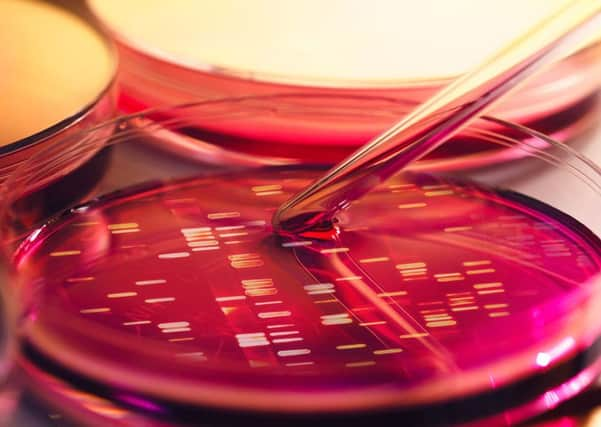Holy grail of tackling '˜Jolie cancer gene' a step closer


Hollywood star Angelina went public in 2013 about her double mastectomy and having both ovaries removed after finding out she carried the BRCA1 mutation.
She had the operation because she lost her mother, grandmother and aunt to the disease and feared she was at risk too,
Advertisement
Hide AdAdvertisement
Hide AdWomen who carry a faulty BRCA1 gene are at high risk of developing aggressive breast cancer.
Many have no option but to choose surgery to remove breast and ovaries to reduce their chance of developing breast and ovarian cancer.
But the discovery by Australian scientists could lead to the first non surgical treatment of women with the inherited faulty gene.
They found by pinpointing the cells that give rise to breast cancers in women with BRCA1, the drug denosumab may have potential to prevent breast cancer from developing.
Advertisement
Hide AdAdvertisement
Hide AdProfessor Geoff Lindeman of the The Walter and Eliza Hall Institute said: “This is potentially a very important discovery for women who carry a faulty BRCA1 gene, who have few other options.
“Current cancer prevention strategies for these women include surgical removal of the breasts and/or ovaries, which can have serious impacts on people’s lives.
“To progress this work, denosumab would need to be formally tested in clinical trials in this setting as it is not approved for breast cancer prevention,”
The study published in Nature Medicine used breast tissue samples of women carrying a faulty BRCA1 gene.
Advertisement
Hide AdAdvertisement
Hide AdCancer precursor cells in BRCA1-mutant breast tissue had many similarities to aggressive forms of breast cancer.
PhD student Emma Nolan said: “These cells proliferated rapidly, and were susceptible to damage to their DNA - both factors that help them transition towards cancer.
“We were excited to discover that these pre-cancerous cells could be identified by a marker protein called RANK.”
Prof Lindeman, added the discovery of RANK as a marker of cancer precursors was an important breakthrough, because inhibitors of the RANK signalling pathway were already in clinical use.
Advertisement
Hide AdAdvertisement
Hide AdHe said: “An inhibitor called denosumab is already used in the clinic to treat osteoporosis and breast cancer that has spread to the bone.
“We therefore investigated what effect RANK inhibition had on the cancer precursor cells in BRCA1-mutant breast tissue.”
It was found RANK inhibition switched off cell growth in breast tissue from women with a faulty BRCA1 gene and curtailed breast cancer development in laboratory models.
He added: “We think this strategy could delay or prevent breast cancer in women with an inherited BRCA1 gene mutation.
Advertisement
Hide AdAdvertisement
Hide Ad“A clinical trial has already begun to investigate this further.”
Professor Jane Visvader said the discovery had its basis in more than a decade of investigations of breast stem cell function.
She said: “By thoroughly dissecting how normal breast tissue develops, we have been able to pinpoint the precise cells that are the culprits in cancer formation.
“It is very exciting to think that we may be on the path to the ‘holy grail’ of cancer research, devising a way to prevent this type of breast cancer in women at high genetic risk.”